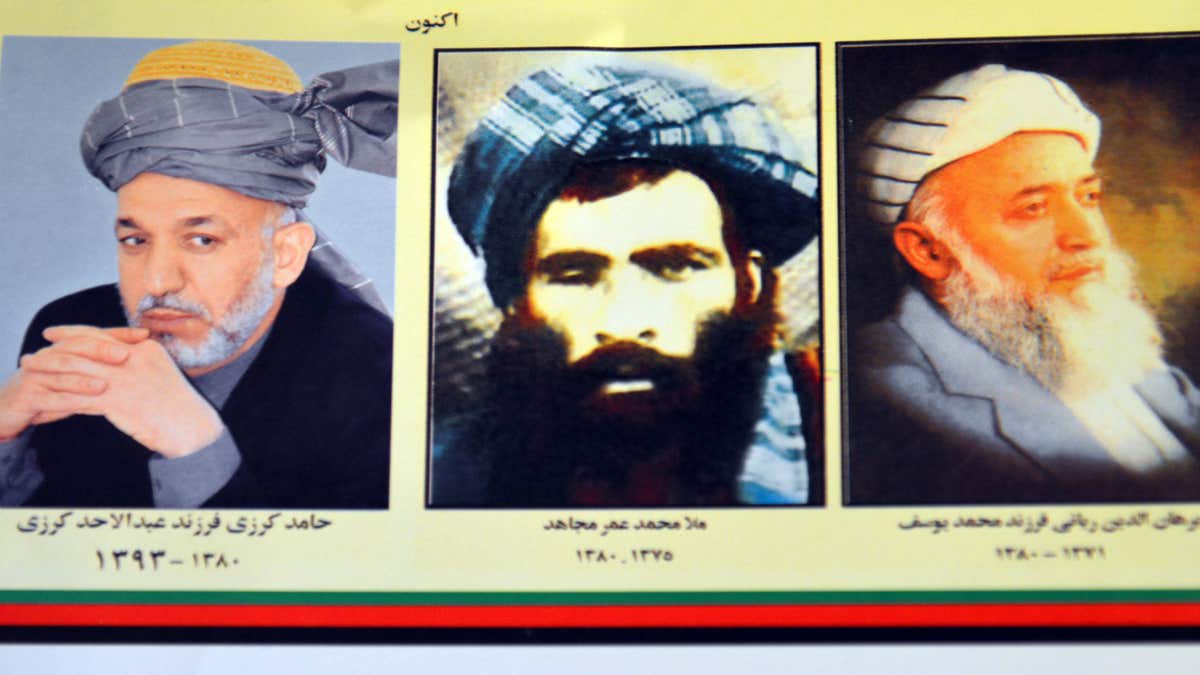
July 30, 2015: An Afghan shop clerk shows a calendar with pictures of Afghan leaders including Mullah Mohammad Omar, center, in Kandahar, south of Kabul, Afghanistan. (AP)
KABUL, Afghanistan – The Afghan Taliban on Friday praised their new leader, saying he was one of the most "trusted" associates of the late Mullah Mohammad Omar, a statement likely meant to rally followers behind the leadership at a time of a deeply fractured insurgency.
The statement, sent to The Associated Press, said the new leader, Mullah Mohammad Akhtar Mansoor, had also been given the title of "Commander of the Faithful," conferring on him the supreme status held by Mullah Omar.
Mansoor has been an "active director" of the jihad, or holy war, for some years, it added. The statement did not give any details of when Mullah Omar died or from what illness.
The Taliban on Thursday confirmed that Mullah Omar died of an illness some time ago and said they elected Mansoor as his successor. The Afghan government announced Wednesday that the reclusive mullah had been dead since April 2013.
The Taliban reacted by pulling out of peace talks that were scheduled to take place on Friday. The Pakistani government, which was to host the meeting, postponed the negotiations indefinitely.
Afghanistan's government said it regretted the postponement of the second formal face-to-face meeting with the Taliban. In a statement, the Foreign Affairs Ministry said Afghanistan "as always, is committed to the peace negotiations with the Afghan Taliban movement and hopes that the aforementioned meeting will be held in the near future."
While the future of the peace process, which is a priority for Afghan President Ashraf Ghani, is uncertain, the ministry added that "Afghanistan believes that in the current situation, peace negotiations are (more) possible than any time before."
The new leader of the Taliban is seen as close to Pakistan, which is believed to have sheltered and supported the insurgents through the war, now in its 14th year. This may put him in a position to revive the peace talks.
According to the Taliban, as Mullah Omar's deputy, Mansoor has been effectively running the insurgency for the past three years and is said to have the loyalty of battlefield commanders who have intensified and spread their insurgency against Kabul in recent months.
Taliban attacks against Afghan officials and forces have intensified with their warm-weather annual offensive and since NATO's combat troops pulled out of the country at the end of last year, leaving Afghan forces in charge of the security situation in their country.








































